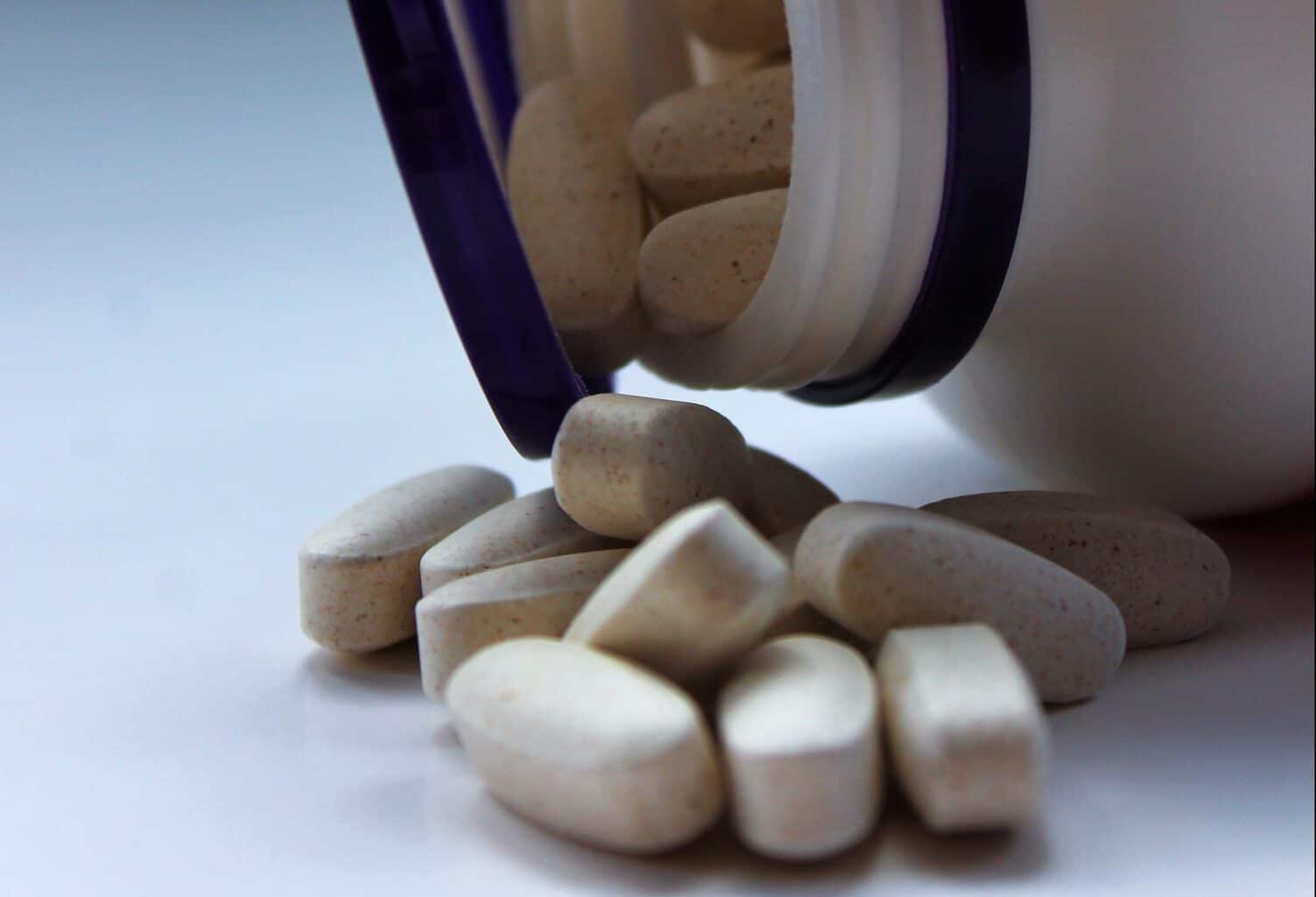- PhentermineLearn more about phentermine and how to get the most from your weight loss journey.
- ResourcesAdditional information and tools to help you make the most of your effort.
- AlternativesLearn more about the most popular weight loss medications and science-backed supplements
Does Vitamin D Help With Weight Loss?
Published on December 9, 2024

The globe’s got a **big issue**: too many of us are packing on the pounds, leading to a bucketful of health troubles (1). Curious about what it actually means to be overweight or obese? Heavy hitters like the World Health Organization (WHO) and the National Institutes of Health (NIH) spell it out as packing on more fat than what’s good for you, throwing your health for a loop (1, 2). Loads of people are switching things up in their daily grind to beat the bulge, but finding the magic formula is tricky. It’s all about cracking the code. Dive in, and you might just snag the lowdown on flipping your habits to boot those extra pounds out the door. Hang tight, ’cause you’re on the brink of uncovering a treasure trove for zipping into a sprightlier, spunkier you!
- Limit intake of refined, sugary (including sugary fruits) or fatty foods.
- Engage in regular dynamic exercises like walking, swimming, jogging, cycling, hiking, etc. (for at 150mins spread through-out weekly for adults).
- Eat high fiber diet regularly like legumes, vegetables e.g carrots, spinach, lettuce, garden egg, etc (3).
Many supplements have been tried with not so favorable outcome (1, 2, 3). Fortunately, vitamin D supplementation has shown encouraging results to bring about weight loss when used by overweight and obese individuals (4).
What is Vitamin D
Vitamin D (Cholecalciferol) is a fat-soluble vitamin, consisting of a group of secosteroids that cause intestinal absorption of calcium, magnesium, and phosphate amongst other biological functions (5). It is naturally sourced from the diet or by the synthesis in the skin after exposure to sunlight (5).
Natural sources include:
- Vitamin D synthesis in the skin following exposure to sunlight
- Food sources like beef liver, fatty fish e.g tuna, mackerel and salmon, cheese, egg york
- Synthetic source like vitamin D oral solution and capsules are also popular
Two major forms of vitamin D exist i.e vitamin D2 and vitaminD3. Vitamin D2 is the type synthesized in the skin while vitamin D3 is gotten from food sources. Both only differ a bit in their chemical structure due to the difference in their side chain. Their function in the body is the same. Both are synthesized and available commercially and as dietary supplements or in fortified foods (5).
Overweight and obesity are major risk factors for vitamin D deficiency. Other risk factors include premature birth, malabsorption, skin pigmentation, low sunshine exposure and advanced age (6).
It is converted to its active form in the liver and the kidneys via hydroxylation. Sunlight is needed for its skin synthesis which may explain in part why it is deficient in some of the obese whose sedentary lifestyle may have led to inadequate sunlight exposure (5). Cholecalciferol is converted in the liver to 25-hydroxycholecalciferol, subsequently converted in the kidneys to 1, 25-cholecalciferol (the active form of vitamin D) also known as calcitriol (5).
The mechanism of action of vitamin D is by the following:
- Stimulation of calcium and phosphate absorption in the proximal segments of the small intestine specifically at the level of the duodenum and jejunum by active and passive transport across the luminal brush-border membrane, through the cytoplasm and across the basolateral membrane of the epithelium (7).
- Stimulation of phosphate reabsorption in both the proximal and distal convoluted tubules of the kidneys (7).
- Stimulation of calcium release to the blood from the bone (7).
- The products of vitamin breakdown are excreted through the bile into the feces from the intestinal tract and via the urine from the kidneys (7).
The Role of Vitamin D
Studies have also shown an inverse relationship between serum vitamin D level, overweight, and obesity (8). This means overweight and obese individuals tend to have lower vitamin D levels. Therefore, women who want to lose weight due to being overweight or obese should have their vitamin D level checked so that any vitamin D deficiency can be corrected through vitamin replenishment to ensure successful weight loss and good health.
It was also shown that vitamin D in diets caused a significant drop in weight of overweight and obese individuals (9). Interestingly, reducing weight also leads to a reduction in vitamin D requirements (10). Vitamin D intake is noted to be useful for both preventing and treating overweight and obesity (8, 9, 10).
Though the extent to which vitamin D cause weight loss is still equivocal but there is evidence that it significantly reduces weight gain. Also, vitamin D has been shown to reduce the mortality and morbidities of obesity-associated illnesses and also improves the outcome of treatment for these ailments (8).
In a double-blind clinical trial conducted by Khosravi et al, 50 overweight and obese women aged 20 to 40 years were recruited and divided into two groups of 25 subjects each (11). One group’s subjects were given vitamin D supplements at doses of doses 50,000 IU/week for 6 weeks, and the other group’s subjects were given placebo.
The weight, height, blood pressure, waist, and hip circumferences, levels of total cholesterol, triglyceride, high-density lipoprotein cholesterol, fasting blood sugar, low-density lipoprotein, homeostasis model assessment of insulin resistance, and C-reactive protein were measured before and after the intervention (11).
At the end of the study (after 6 weeks of intervention), it was noted that there were significant reductions in the weight, body mass index, waist circumference, and hip circumference (11). This was a significant finding on the effect of vitamin D on weight loss.
Vitamin D vs Obesity
A meta-analysis by Mallard et al in 2016 noted that weight loss improved serum vitamin D indicating that the mass of adipose tissue in the body was inversely proportional to vitamin D level in the body (12).
Increased dietary vitamin D intake or supplementation reduces weight through the following ways:
- It increases serum calcium level and this causes acceleration in lipolysis and inhibition in lipogenesis (13).
- It improves serotonin production and serotonin causes weight loss (10, 14).
- Vitamin D causes a reduction in adipogenesis (10).
- It impedes on the storage of adipose tissue (10).
- Vitamin D induces production and release of testosterone and this promotes weight loss (14).
Vitamin D, Calcium and Weight Loss
Studies on the agouti gene show its influence on overweight, obesity and type 2 diabetes mellitus (13). It was confirmed that low calcium diet causes increased intracellular calcium, and this resulted in induced lipogenic gene expression.
The effect of this was increased lipogenesis and reduced lipolysis, thus encouraging overweight and obesity (11, 13). It was also noted that activation of Agouti-Related Protein/Neuropeptide Y and suppression of the pro-Opiomelanocortin/ Cocaine-amphetamine-regulated pathway can be caused by vitamin D deficiency, increasing appetite and reducing energy consumption (13).
This means replenishing vitamin D through vitamin D supplementation or dietary intake will prevent weight gain and cause weight loss (11, 13).
Vitamin D, Serotonin and Weight Loss
Vitamin D cause production of serotonin in the brain by activating the transcription of the serotonin-synthesizing gene tryptophan hydroxylase -2 enzymes at a vitamin D response element and suppression in the transcription of TPH1 in other body tissues at another distinct vitamin D response element (15).
This means vitamin D causes an upsurge in serotonin production and secretion. Serotonin is known to reduce appetite (14). Hence, with increased serotonin production and secretion there will be a reduction in caloric intake, reduction in hunger, and improved and sustained satiety leading to weight loss and prevention of weight gain; hence the need for vitamin D supplementation in circumstances of overweight and obesity.
Vitamin D and Storage of Fat
Low serum vitamin D status has been associated with excess lipid storage in fat cells and worsening obesity (2, 4). In a more recent study by Chang et al., it was shown that vitamin D prevents the storage of lipid in fat cells. It was also noted that vitamin D improves metabolism in fat cells, increases fatty acid oxidation and reduces the level of the adipogenic gene.
This implies that vitamin D enhances the breakdown of fats in storage sites, prevents the accumulation of fats for storage, and thins-out fat stores. In this manner, vitamin D proves beneficial to weight loss in overweight and obese individuals (2, 4).
Vitamin D, Testosterone and Fat Breakdown
It has been observed that prolong use of vitamin D for up to a year can result in increased production of testosterone (2). Several studies have also shown that testosterone increases fatty acid breakdown, breakdown of lipid stores reduces adipogenesis, increase overall body metabolism leading to weight loss (2, 12).
This mechanism has been found particularly useful in men battling overweight and obesity. Vitamin D’s influence on testosterone is also found using for body redistribution of fat, hence its use to treat abdominal obesity (2, 16).
Other uses of vitamin D supplementation are also found to be very beneficial to the overweight or obese individual as many of the obesity-associated diseases are also being treated with vitamin D (5, 17). These obesity-associated diseases ameliorated with vitamin supplementation include:
Pregnancy complications
Gestational diabetes mellitus, pre-eclampsia, and small-for-gestational-age are some of the known pregnancy complications associated with overweight and obesity (5). Lower risk of pre-eclampsia with improved immunity has been noted in pregnant women who take vitamin D during pregnancy (5). In a review in 2018, there was a reduction in the rate of intrauterine growth reduction in the population of women who took vitamin D supplements during pregnancy (18).
Depression
It’s been shown that vitamin D supplementation has some effect in improving depression though may not totally cure depression (18).
Asthma and Respiratory infections
It’s been noted that vitamin D improves the innate immunity hence the increased risk of tuberculosis and viral infections in vitamin D deficiency. Evidence exists that vitamin D improves and prevents exacerbation of asthma and reduces the risk of respiratory tract infection (18).
How much of Vitamin-D do you may need to lose weight?
The exact dose to be given should be based on the weight of the individual ideally as reported in a cross-sectional study where it was stated that the required amount of vitamin-D (needed to correct a deficiency or as supplementation to induce weight loss) should be titrated based on the weight and body mass of the individual (5).
In summary, the recommended dose of vitamin D for adults is 600IU per day though some authors suggest that this is dependent on body size and should be an average of 34IU per pound daily i.e 75IU per Kg daily (18,19). Vitamin D supplementation can be a game-changer to achieving the desired outcome. The established daily limit is 4200IU per week though the amount may be higher depending on the body weight (19).
Doses in the range of 9000IU to 10000 IU has been reported with no significant side effect but as much as possible doses within the optimum range is safer. In order to avoid significant adverse effects and toxicities, it’s best to stick with the optimum (not more than 600IU per day). Current preparations for easy uses are in the form of oral solution or capsules. It can be taken directly or in fortified foods (20).
Conclusion
Overweight and obesity are fraught with many health challenges which range from benign ones like the problem of cosmesis to life-threatening ones like coronary heart diseases.
In time past, many modes of treatments have been tried to induce weight loss ranging from lifestyle modification to the use of different types of drugs and therapy. All these have varied outcome but largely unsatisfactory in the majority of the overweight and obese population. Fortunately, one has been tried and found effective, and that is Vitamin D.
Overweight and obesity have been implicated as one of the causes of vitamin D deficiency.
To combat overweight and obesity, vitamin D replenishment should be instituted. Vitamin D can be gotten from natural sources like early morning sunlight exposure to skin or from food source, however, weight loss, in this case, will be very slow as so much quantity will be needed from these sources, meanwhile there is an already existing deficiency of vitamin D due to the overweight and obesity.
To induce a more rapid loss of weight comparatively, there is a need for vitamin D supplementation either as an oral solution or the capsular form.
The pieces of evidence are there proving that the use of vitamin D in treating overweight and obesity cannot be overemphasized.
Back to the question: Does vitamin-D help with weight loss?
My answer: Yes!
References
(1) https://www.ncbi.nlm.nih.gov/pubmed/20202574
(2) https://en.wikipedia.org/w/index.php?title=Obesity&oldid=902212262
(3) https://www.who.int/news-room/fact-sheets/detail/obesity-and-overweight
(4) https://www.ncbi.nlm.nih.gov/pubmed/18611299
(5) https://en.wikipedia.org/w/index.php?title=Vitamin_D&oldid=901878299
(6) https://www.sciencedirect.com/science/article/pii/S0079610706000083
(7) https://www.ncbi.nlm.nih.gov/pmc/articles/PMC3743361/
(8) https://www.ncbi.nlm.nih.gov/pubmed/22385576
(9) https://www.ncbi.nlm.nih.gov/pubmed/19263591
(10) https://www.ncbi.nlm.nih.gov/pubmed/21118827
(11) https://www.ncbi.nlm.nih.gov/pubmed/30123437
(12) https://www.nejm.org/doi/10.1056/NEJMoa1811744
(13) https://www.ncbi.nlm.nih.gov/pmc/articles/PMC3599592/
(14) https://www.ncbi.nlm.nih.gov/pubmed/24558199
(15) https://www.ncbi.nlm.nih.gov/pubmed/22262154
(16) https://en.wikipedia.org/w/index.php?title=Obesity&oldid=902212262
(17) https://www.ncbi.nlm.nih.gov/pubmed/25300649
(18) https://reference.medscape.com/drug/drisdol-calciferol-vitamind-344417#0
(19) https://www.ncbi.nlm.nih.gov/pubmed/21118827
(20) https://www.ncbi.nlm.nih.gov/pubmed/17209171/


